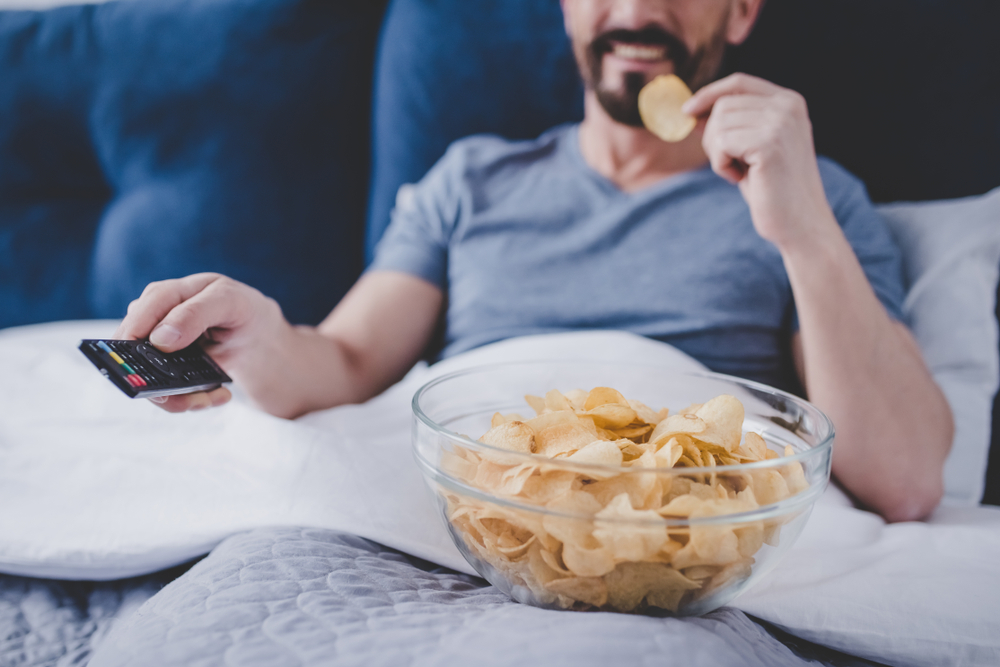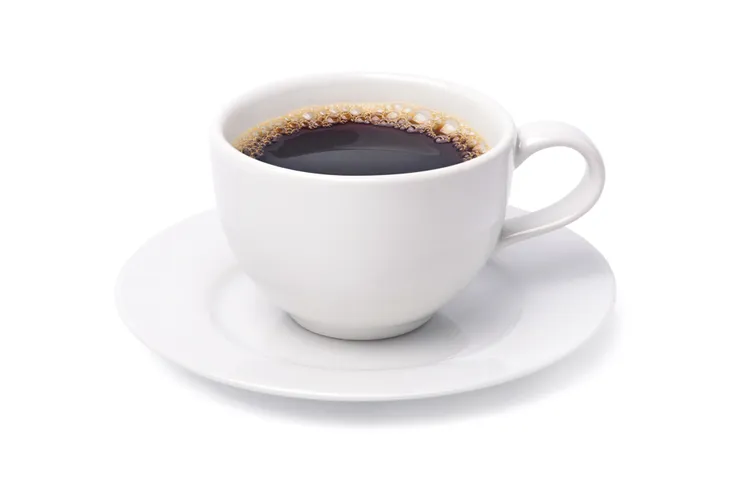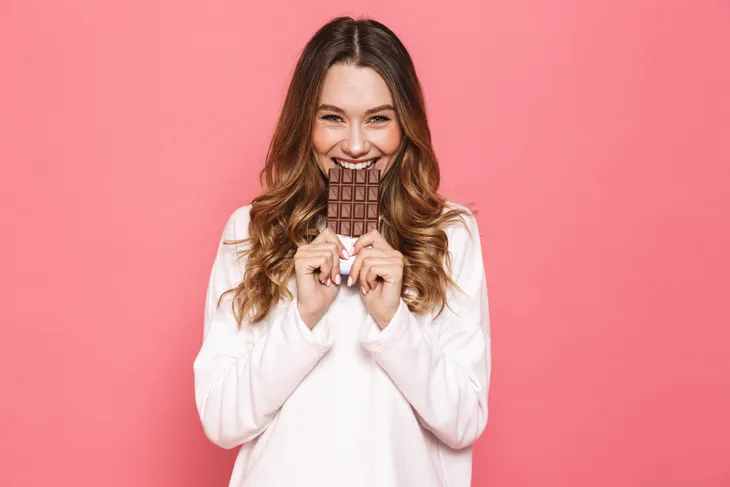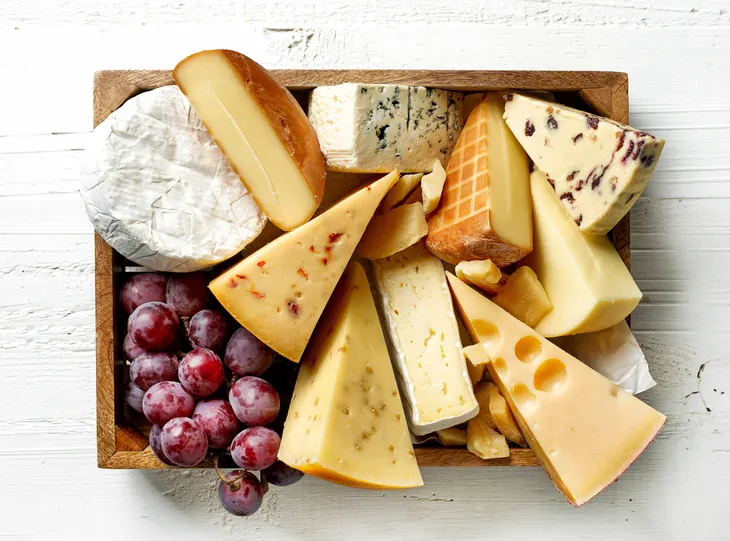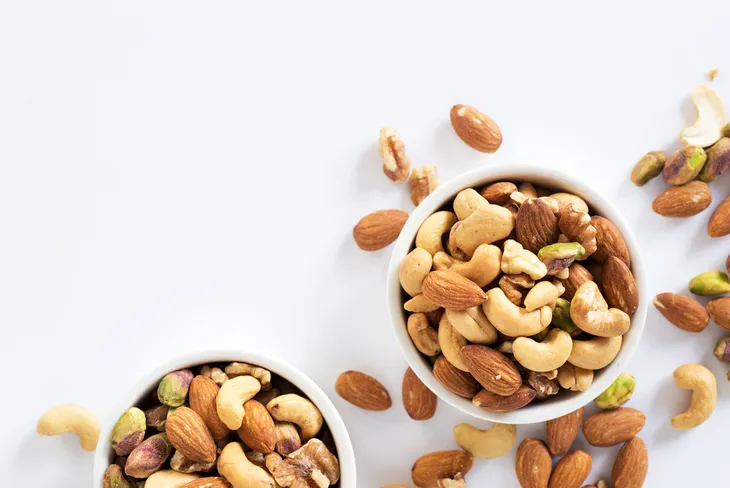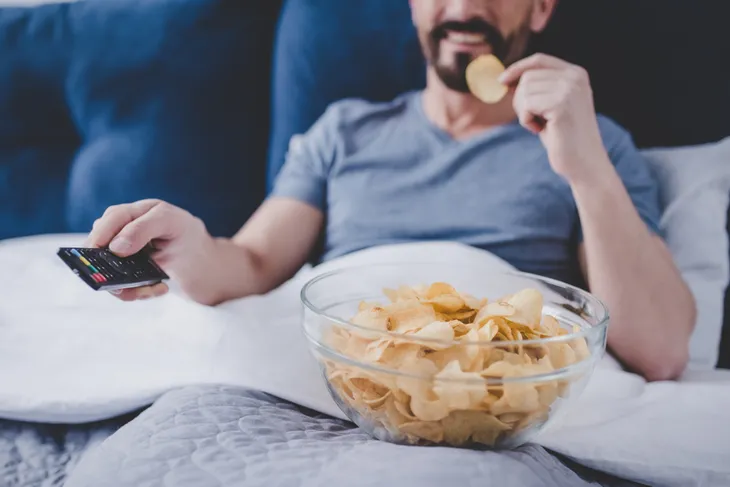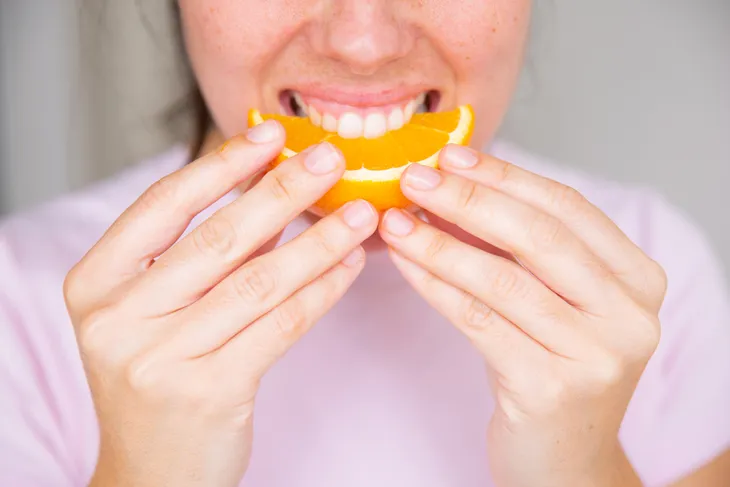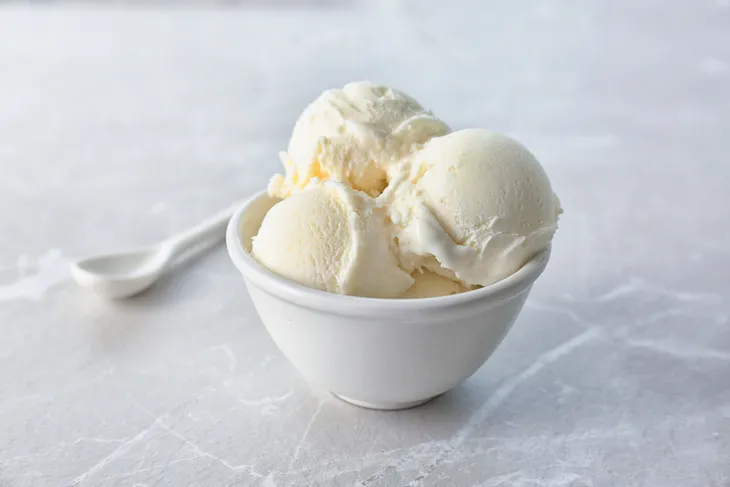When you’re feeling a tad peckish in the evening hours, what you reach for may fill you up, but it can also cause weight gain, tissue damage (or acid reflux), and even mess with your sleep schedule. While low acid foods—like whole grain cereal, herbal teas, low fat milk or yogurt, and bananas soothe the tummy—caffeinated, high fat and sugar, and acidic foods can ruin your sleep, expand your waistline, and even damage the tissue lining in your esophagus and throat, according to researchers at University of Rochester, Medical Center.
Let’s ensure you’re not reaching for these nine before-bedtime baddies when the midnight munchies strike…
You might also be interested in these Food Choices That Promote Sleep.
Coffee
For obvious reasons, brewing a cup of coffee before bedtime will keep you up at night. Not only is coffee rich in caffeine—the brew is also pretty acidic, which encourages the production and churning of stomach acid while you sleep. If you absolutely need a cup, opt for a decaf brew with little caffeine and less acid.
Chocolate
After a hard day at work, sometimes a bar of chocolate and a chick flick are what we really crave. However, a regular chocolate noshing habit before bedtime not only threatens the “happily ever after” of your waistline—chocolate is also highly caffeinated with simulative effects from theobromine, a bitter alkaloid derived from the cacao plant.
Alcohol
A nightcap, in the form of a tumbler of scotch or a nice glass of wine, might well calm the nerves. However, the relaxing effects of alcohol also influence the valves that connect the stomach and esophagus, calming them so much that they’re unable to keep undigested food down, causing acid reflux while you sleep. A prone position (lying down) can also exacerbate acid reflux.
Cheese
One can hardly enjoy a nighttime glass of wine without a few pieces of cheese. However, just like the wine can spell esophageal troubles—so can the cheese. That means mozzarella on pizza and other softer cheeses will result in acid reflux. Keep in mind that soft type cheeses (feta, brie, Havarti, and cream cheese) are more prone to causing reflux than hard cheeses (i.e., Parmesan, gouda, and Swiss).
Nuts
I know that I expel the health benefits of eating raw nuts a lot on this site. However, when it comes to eating them before bedtime, all bets are off! Nuts are high in fat, sure it’s polyunsaturated omega-3 fats and omega-6 fats, but it’s still fat that can’t be burned off with regular daily activities. As soon as you lay down after noshing on nuts, those walnuts, almonds, cashews, macadamia nuts, or shelled peanuts will sit in your digestive system and make it difficult for you to fall asleep.
Fatty, Processed Foods
I’m talking about convenience foods here—be they fast food cheeseburgers and fries or bagged cookies and chips. These foods might provide comfort during an evening of sitcoms—however, they not only cause weight gain, they also cause nasty acid reflux that will disturb an otherwise good night’s sleep.
Citrus
Citrus is a label that covers the obvious snack culprits—orange juice, oranges, tomatoes, lemonade, and grapefruit, but it also includes a few less discernible foods—like green apples, cherries, peaches, and blueberries. So if you innocently nosh on berries or a bowl of cherries before bedtime, it might explain your acid reflux.
Soda
Not only is sipping soda a sugary no-no before bedtime, a can or bottle is so high in acid and carbonation. While the acidic in soda can wear down the protective enamel on your teeth if you don’t habitually brush, it will also cause acid tissue damage inside your body. While the excess carbonation will linger in your tummy, resulting in increased pressure and painful gas that worsens when you lie down. This can cause the development of acid reflux.
Ice Cream
Bad day? Ice cream seems like the obvious answer. Just be sure you eat it early enough in the evening (at least 3 hours prior to bedtime) to avoid going to bed with some pretty unhealthy bedfellows—in the form of fat and refined sugars. While the fat won’t burn off while you sleep; the sugar will cause your insulin and energy levels to spike, resulting in tossing, turning, and even bad nightmares.
